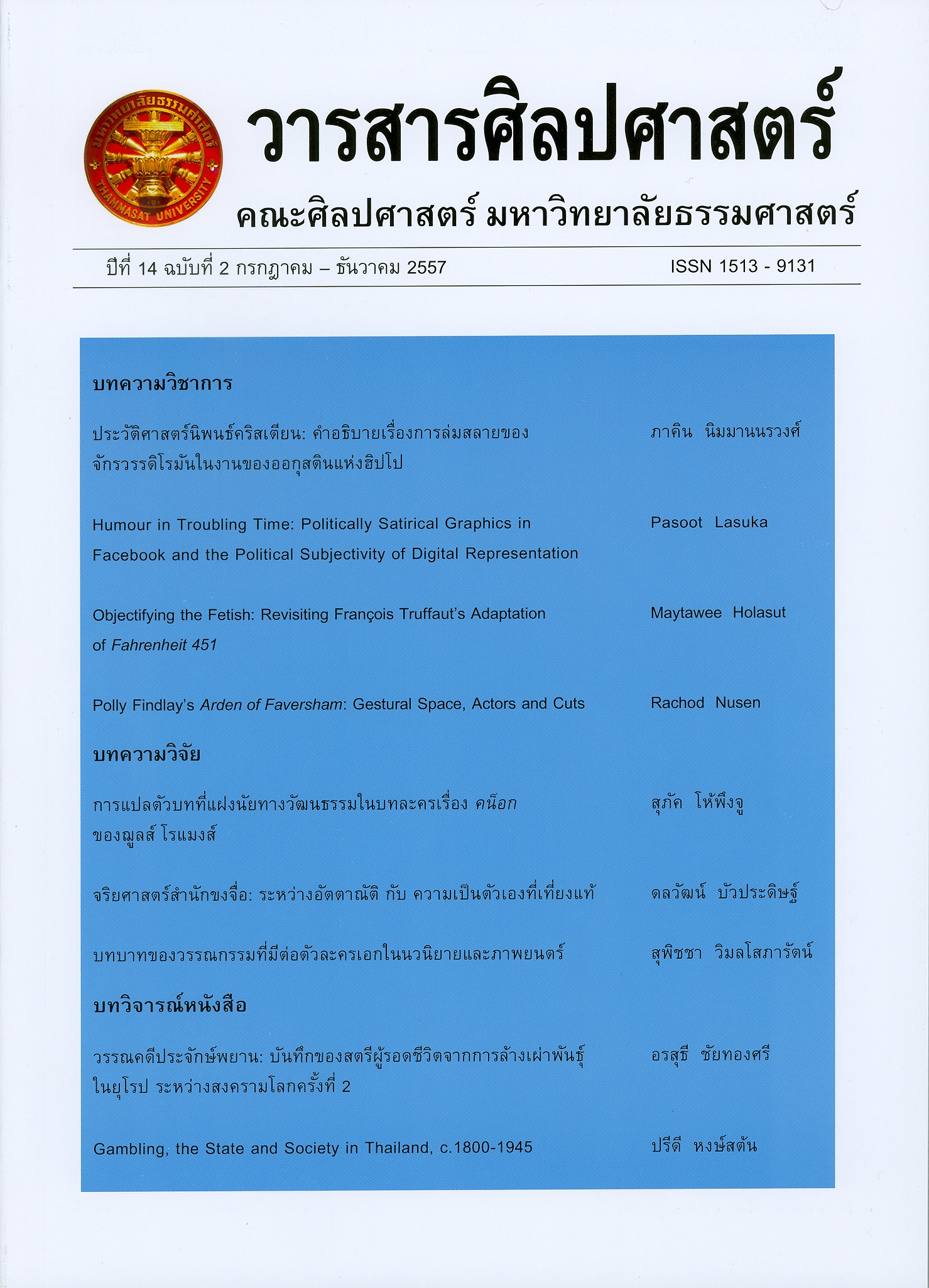การแปลตัวบทที่แฝงนัยทางวัฒนธรรมในบทละครเรื่อง คน็อก ของฌูลส์ โรแมงส์
Main Article Content
Abstract
บทความนี้มีวัตถุประสงค์เพื่อนำเสนอปัญหาและแนวทางการแก้ไขปัญหา การแปลตัวบทที่มีนัยแฝงทางวัฒนธรรมตามทฤษฎีการแปลแบบยึดความหมายของสถาบันชั้นสูงด้านการล่ามและการแปลแห่งมหาวิทยาลัยปารีส III (Ecole Supérieure d’Interprètes et de Traducteurs หรือ ESIT) โดยจะยกตัวอย่าง บทแปลและกระบวนการวิเคราะห์การแปลจากบทละครแนวตลกร้ายอันโด่งดังของฝรั่งเศสเรื่อง คน็อก ของฌูลส์ โรแมงส์ นักเขียนบทละครและนักประพันธ์ชาวฝรั่งเศสในช่วงต้นศตวรรษที่ 20 ผู้วิจัยได้ศึกษาความแตกต่างทางวัฒนธรรมที่ส่งผลต่อการแปล อันได้แก่ การแปลสำนวนเปรียบเทียบ การแปลศัพท์เฉพาะที่ใช้ในวงการอาชีพ การถ่ายทอดชื่อเฉพาะที่มีนัยประหวัด และการถ่ายทอดอารมณ์ขัน ผลการศึกษาพบว่าในการแปลตัวบทที่มีนัยแฝงทางวัฒนธรรม ผู้แปลต้องทำความเข้าใจนัยแฝงทางวัฒนธรรมอย่างถ่องแท้และถ่ายทอดความหมายนั้นอย่างครบถ้วนโดยไม่ยึดติดกับภาษาต้นทาง และอาจต้องมีการปรับบทแปลเพื่อให้สื่ออรรถและรสได้เท่าเทียมกับต้นฉบับ
The objective of this paper is to present the problems found in cross-cultural translations and offer solutions based on the interpretative theory of translation developed by researchers of Ecole Supérieure d’Interprètes et de Traducteurs (ESIT), University of Paris III. Alongside some examples of issues found during the translation process of the French distinguished black humor comedy entitled Knock, written by a playwright and novelist of early 20th century, Jules Romains, this article points out four problems: proverbial issues, terms used in particular professions, proper nouns in specific connotations and humoristic features. The findings from this analysis suggest that cross-cultural translations require full comprehension in source text and adaptation is needed as it may be difficult to maintain both content and emotional effects between source and target languages.


